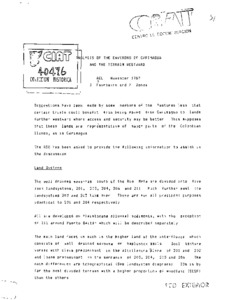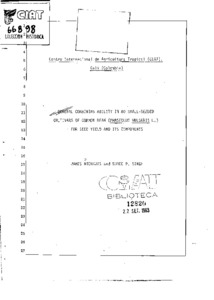Mission
To reduce hunger and poverty, and improve human nutrition in the tropics through research aimed at increasing the eco-efficiency of agriculture.
People
CIAT’s staff includes about 200 scientists. Supported by a wide array of donors, the Center collaborates with hundreds of partners to conduct high-quality research and translate the results into development impact. A Board of Trustees provides oversight of CIAT’s research and financial management.
Values
- Shared organizational ethic
- We respect each other, our partners, and the people who benefit from our work. We act with honesty, integrity, transparency, and environmental responsibility in all of our joint endeavors.
- Learning through partnerships
- We work efficiently and pragmatically together and with partners. Considering our diversity to be a key asset, we adapt readily to change and strive to improve our performance through continuous learning.
- Innovation for impact
- We develop innovative solutions to important challenges in tropical agriculture, resulting in major benefits for the people who support, participate in, and profit from our work.
Members:
Resources
Displaying 816 - 820 of 958Analysis of the environs of Carimagua and the terrain westward
Proyecto pasturas en Panama (IDIAP/RUTGERS/CIAT)
General combining ability in 80 small-seeded cultivars of common bean (Phaseolus vulgaris L.) for seed yield and its components
Increase in yield potential of dry common bean (Phaseolus vulgaris L.) cultivars has been either imperceptible or small and gradual, in spite of large variation of most traits, including seed yield. Therefore general combining ability (GCA) of 80 cultivars and lines was investigated. Eight sets of 10 entries each were used, with five parents each as females and males in a Design II mating system. The resulting 200 F2 populations, excluding parents, were evaluated in a replicates-in-sets design for yield and its components at two locations in Colombia.





